Terumah

Parashat Terumah, (Hebrew for “gift” “donation” or “offering”) tells of G-d’s instructions to make the Mishkan, the Tabernacle, the portable shrine to house the Ark and the Tablets of the Pact, and its furnishings. The parashah constitutes Exodus 25:1–27:19.
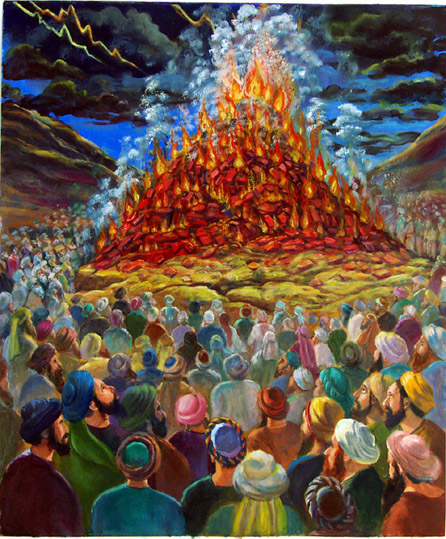
G-d has just told Mosheh “to come to the mountain to receive the tablets of stone, to receive G-d’s Commandments.” Mosheh goes up the mountain, and a cloud comes to cover it, hiding the mountain completely. On this mountain Mosheh remained for forty days and nights.
Take versus give
“וַיְדַבֵּ֥ר יְהוָ֖ה אֶל־מֹשֶׁ֥ה לֵּאמֹֽר׃בדַּבֵּר֙ אֶל־בְּנֵ֣י יִשְׂרָאֵ֔ל וְיִקְחוּ־לִ֖י תְּרוּמָ֑ה”
When Hashem wanted Bnei Israel to give materials for the Mishkan, why did He say to Mosheh וְיִקְחוּ־לִ֖י let them take for Me a donation? Shouldn’t He have said let them give Me a donation? One explenation Hashem used the word “take” rather than “give” because no human being can ever give anything to Hashem, since whatever we have belongs to Him (Levush Haorah to Rashi)
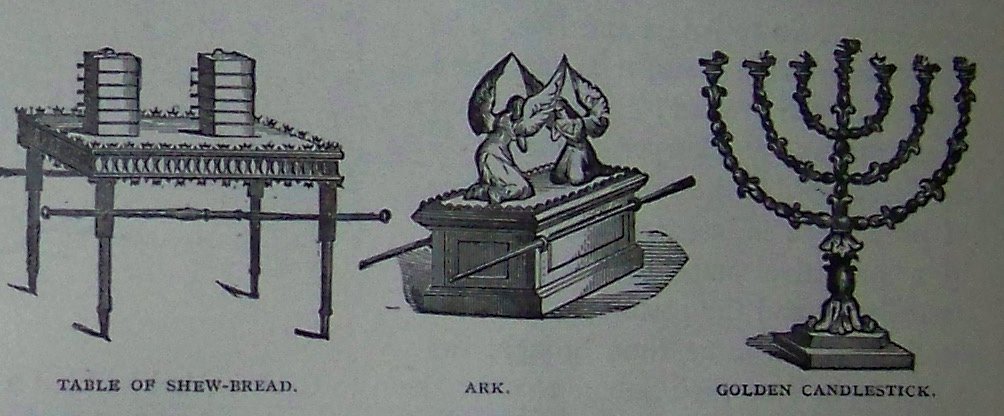

The 13 materials needed
On Mount Sinai G-d first instructs Mosheh to call upon the people of Israel, only those whose heart so moved them to bring gifts and contribute the thirteen materials needed to build the Mishkan: gold, silver and copper; blue, purple, and red-dyed wool; flax, goat hair, animal skins, wood, olive oil, spices and gems- out of which, G‑d says to Mosheh, “They shall make for Me a Sanctuary, and I shall dwell amidst them.” Mosheh is given detailed instructions on how to construct this dwelling for G‑d so that it could be readily dismantled, transported and reassembled as the people journeyed in the desert.
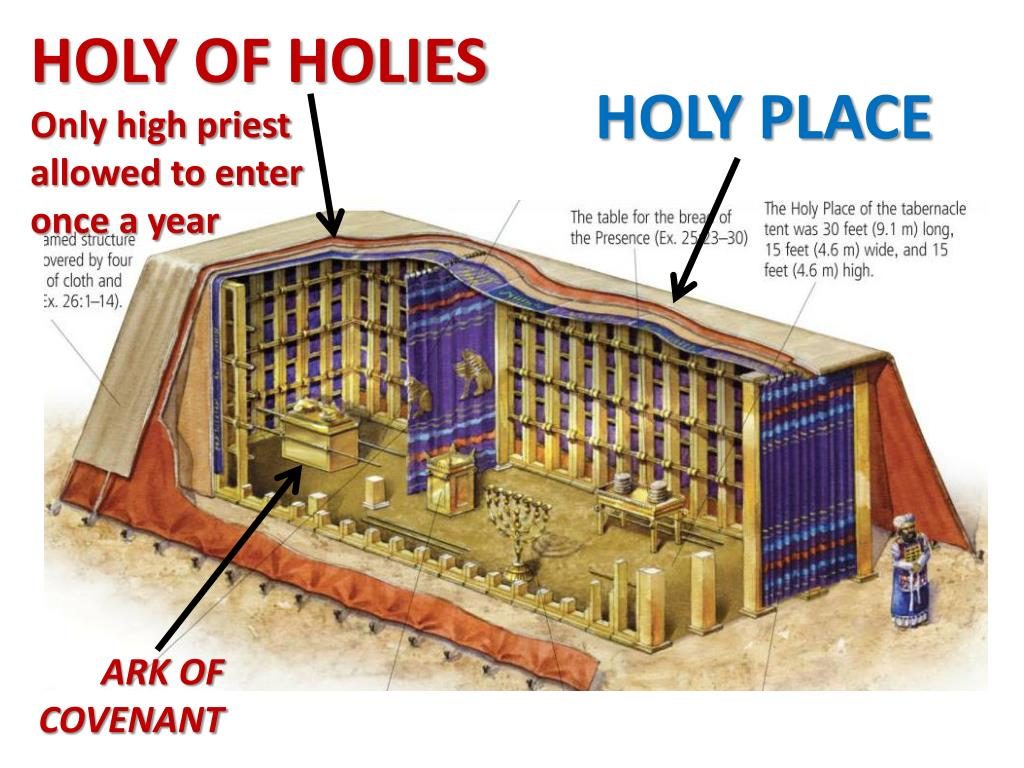
”We make a living by what we get, but we make a life by what we give.” Winston Churchill
Heaven on earth
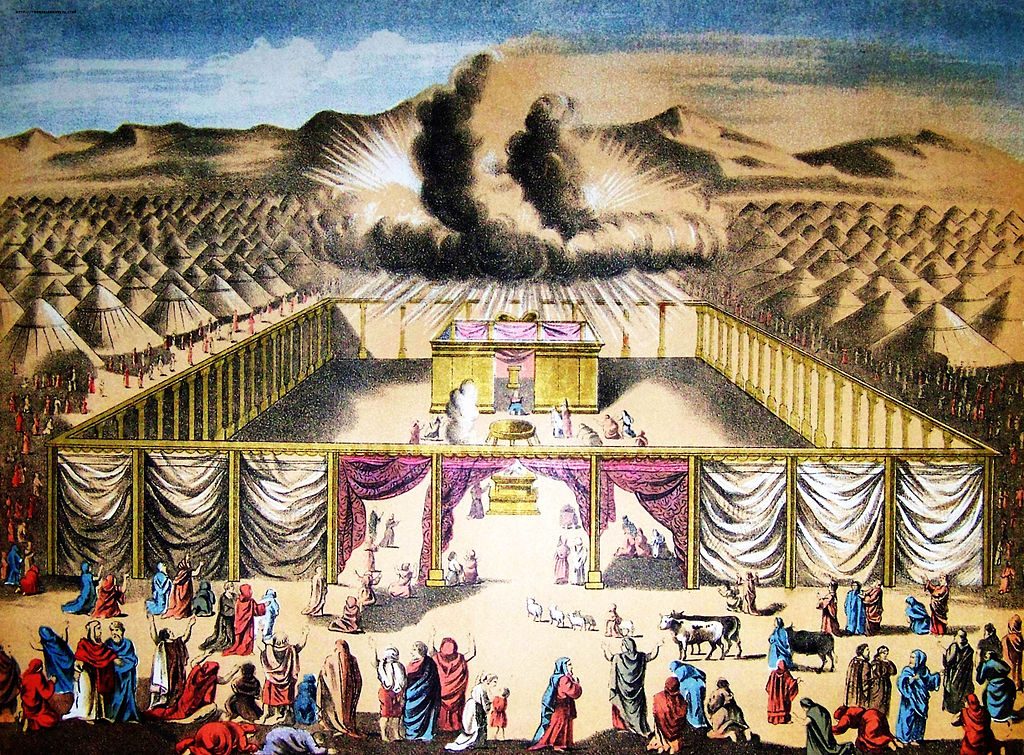
A Midrash taught that everything G-d created in heaven has a replica on earth. And the Midrash taught that many things in the Tabernacle reflected things in heaven. Thus Isaiah 37:16 reports that there are cherubim in heaven, saying, “O Lord of hosts, the God of Israel, Who sits between the cherubim.” While below on earth, Exodus 25:18–20 directs the Israelites to fashion two cherubim of gold to spread their wings to cover the Ark.
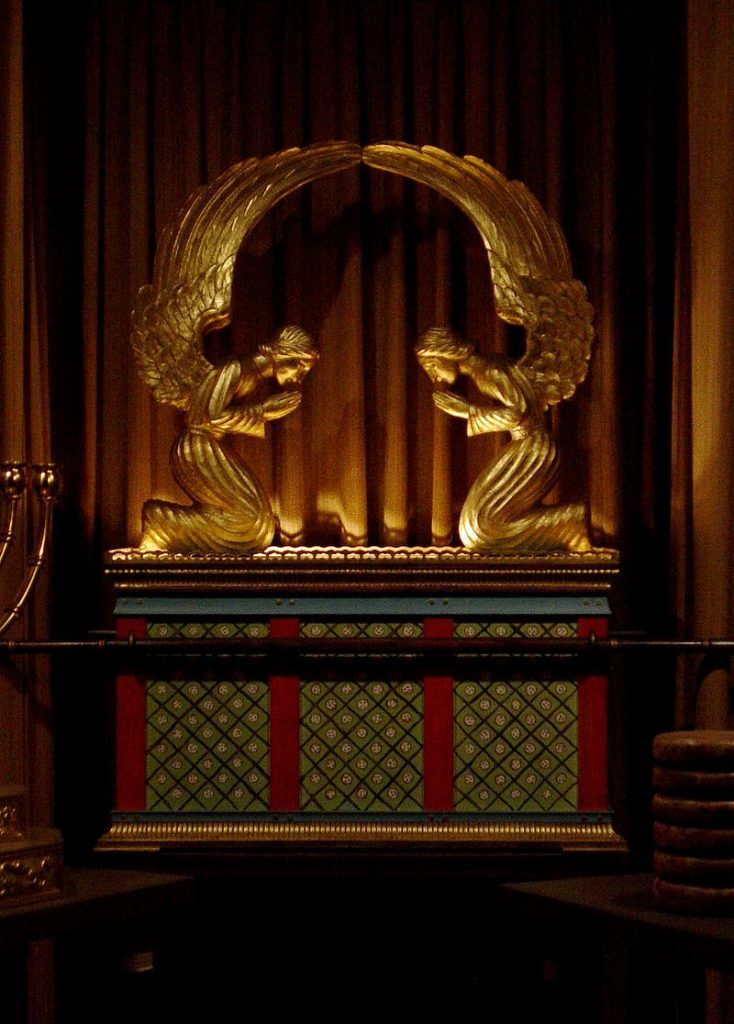
Of heaven, Psalm 104:2 reports that God “stretches out the heavens like a curtain.” While of earth, Exodus 26:1 directs the Israelites to create “ten curtains” for the Tabernacle.

Of heaven, Genesis 1:6 reports God’s command, “Let there be a firmament in the midst of the waters, and let it divide the waters from the waters.” While on earth, Exodus 26:33 directs the Israelites that “the veil shall divide between the holy place and the most holy.”
The Midrash taught that G-d holds the things below on earth dearer than those above, for as Exodus 25:8 reports, G-d left the things in heaven to descend to dwell among those below, saying, “And let them make Me a sanctuary, that I may dwell among them.”
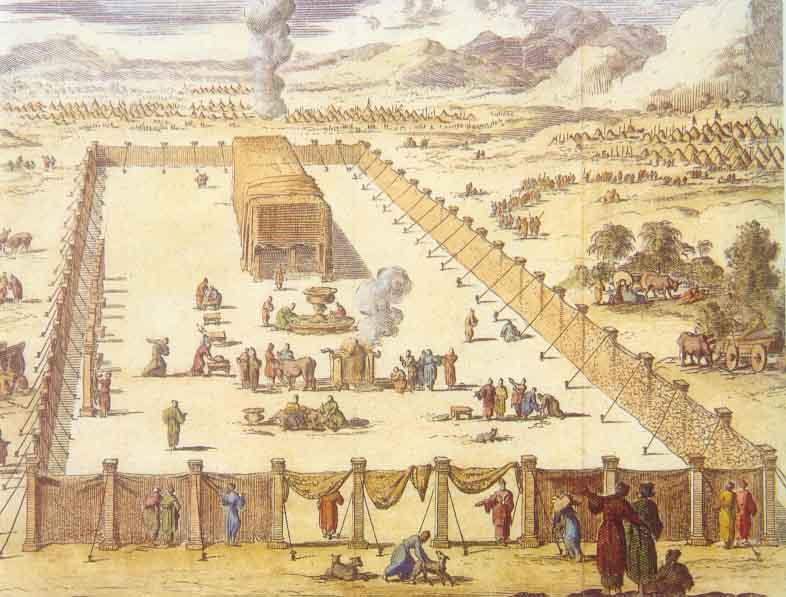
Mosheh and King Solomon
A Midrash told that when G-d told Mosheh to make a tabernacle for G-d (in Exodus 25:8), Mosheh questioned how G-d could command Mosheh make a tabernacle for G-d, if G-d’s Glory fills heaven and earth. And Mosheh saw prophetically that Solomon would one day build a Temple, much larger than the Tabernacle, and yet (in 1 Kings 8:27) Solomon would say to G-d, “But will G-d in truth dwell on the earth? Behold, heaven and the heaven of heavens cannot contain You; how much less this house that I have built!” G-d replied that G-d does not think as humans think. Twenty boards on the north, twenty on the south, and eight in the west can suffice. G-d could even confine G-d’s Shechinah within one square cubit- Exodus Rabbah 34:1. The Haftara for the parashah is 1 Kings 5:26–6:13
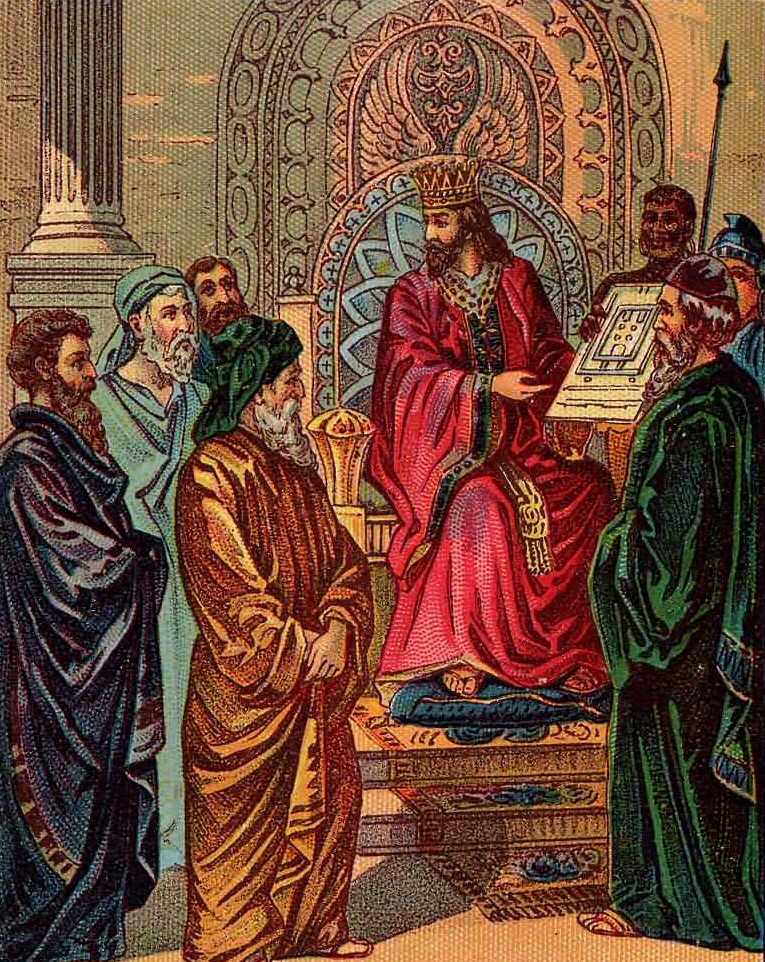
G-d is everywhere
“In this sanctuary,” G-d says, “the Israelites are to bring me gifts.” Most of the portion is the long description of the building of the tabernacle, a traveling temple that the Jews had in the desert. Rabbi Tarfon said, “How great is work, for even G-d (who is everywhere) will not bring the divine presence to rest on the Jewish people until they have done work. As the Torah says, ‘(They must) make for me a tabernacle and (then) I will dwell among them.’” -Avot D’rabbi Nason
“Do you believe in G-d ?”
“Do you believe in G-d?” is not the central Jewish spiritual question. True, it takes time and effort to have G-d in your life. In Judaism the focus is not on belief, but on faith. Jewish life is interested not in proving G-d’ existance but in feeling G-d’ presence. Judaism is interested in what modem Jewish philosopher Abraham Joshua Heschel (1907-1972) called moments of “awe and wonder,” moments when G-d suddenly seems close. Invite G-d into your life in order for G-d to be present in your life. May G-d be with you always. Kol Tuv.

The 613 Mitzvot
In The Torah there are 613 commandments, mitzvot, also known as the Law of Moses (תרי״ג מצוות, taryag mitzvot). The 613 mitzvot are first recorded in the 3rd century CE, when Rabbi Simlai mentioned it in a sermon that is recorded in Talmud Makkot 23b.
The 613 commandments include 248 “positive commandments”, to perform an act (mitzvot aseh), and 365 “negative commandments”, to abstain from certain acts (mitzvot lo taaseh). The negative commandments number 365, which coincides with the number of days in the solar year, and the positive commandments number 248, a number ascribed to the number of bones and main organs in the human body.
Though the number 613 is mentioned in the Talmud, its real significance increased in later medieval rabbinic literature, including many works listing or arranged by the mitzvot. The most famous of these was an enumeration of the 613 commandments by Maimonides, The Rambam.
Many of the mitzvot cannot be observed now, following the destruction of the Second Temple, although they still retain religious significance. According to one standard reckoning, there are 77 positive and 194 negative commandments that can be observed today, of which there are 26 commands that apply only within the Land of Israel. Furthermore, there are some time-related commandments from which women are exempt (examples include shofar, sukkah, lulav, tzitzit and tefillin). Some depend on the special status of a person in Judaism (such as kohanim), while others apply only to men or only to women.
Terumah 5 Mitzvot
according to Rambam Organized by Parsha. based on Wikipedia http://www.vaadrv.org/rambam613mitzvot.asp
ONE BIG IMPORTANT NOTE WHEN USING THIS LISTING: This listing is not all inclusive. Rambam may site multiple sources for a mitzvah is his works but this list currently only gives one source for each mitzvah.
The 5 Mitzvot in Parashat Mishpatim
- The court must give lashes to the wrongdoer Ex. 25:2
- To build a Temple Ex. 25:8
- Not to remove the staves from the ark Ex. 25:15
- To make the show bread Ex. 25:30
- To light the Menorah every day Ex. 27:21

Check out YedidYah Psalm 96 “Yiram Hayam” Music by Rabbi Yakira Yedidia https://youtu.be/aTBD4i9nvXw
The Priestly Blessing
יְבָרֶכְךָ יהוה, וְיִשְׁמְרֶךָ- May the LORD bless you and guard you
יָאֵר יהוה פָּנָיו אֵלֶיךָ, וִיחֻנֶּךָּ -May the LORD make His face shed light upon you and be gracious unto you
יִשָּׂא יהוה פָּנָיו אֵלֶיךָ, וְיָשֵׂם לְךָ שָׁלוֹם- May the LORD lift up His face unto you and give you peace
Check out YedidYah “The Priestly Blessing” Birkat Hakohanim. Music by Rabbi Yakira Yedidia https://youtu.be/YNE11QdEMN0
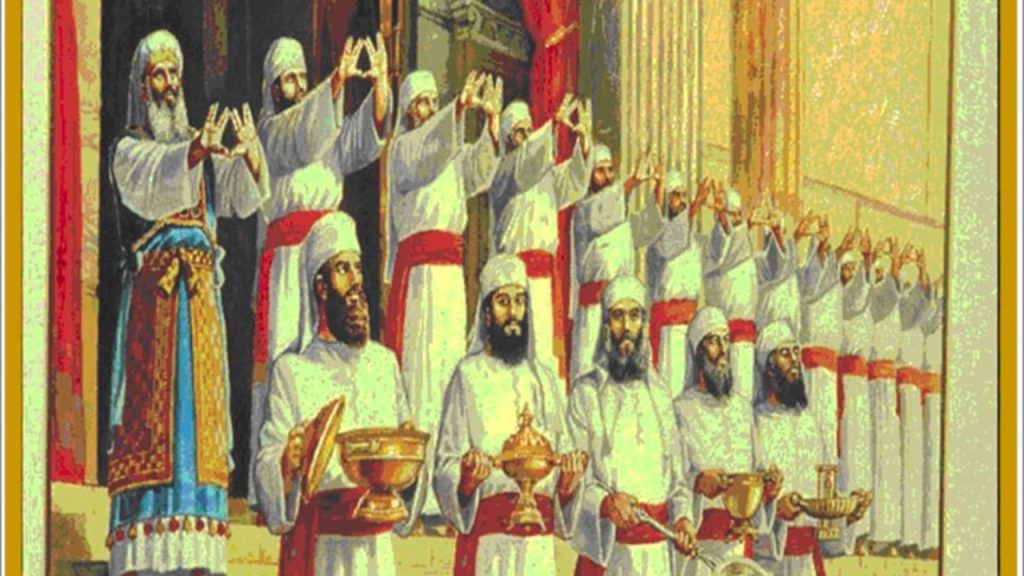
#####
This blog article was inspired by chabbad.org

